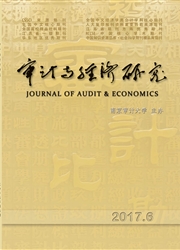

 中文摘要:
中文摘要:
以高管激励为主要切入点,通过研究2010—2014年A股上市公司数据,在分析我国企业高管团队背景特征对投资效率影响的基础上,结合高阶理论、委托代理理论和激励理论,探讨高管激励对高管背景特征与投资效率关系的调节效应。研究结果表明:(1)高管团队的平均年龄和平均任期与投资效率呈正相关关系;(2)高管薪酬激励对高管年龄和投资效率的关系以及高管学历水平和投资效率的关系均具有正向调节效应;(3)高管晋升激励对高管年龄和投资效率、高管学历水平和投资效率以及高管任期和投资效率这三种关系具有正向调节效应,但对高管性别与投资效率的关系具有反向调节效应。此外,具体划分投资不足组和过度投资组,国企组和民营企业组,并做了进一步检验,对不同企业如何通过适当的激励制度提升投资效率提供了更有针对性的实践思路。
 英文摘要:
英文摘要:
By using the listed companies during 2010-2014 as a sample,this paper uses the upper echelons theory,principal agent theory and incentive theory to analyze incentive mechanism's moderating effect on the relationship between TMT's charac- teristics and investment efficiency. The resuhs show that: ( 1 ) there is a positive relationship between TMT's age and investment efficiency, so is the relationship between TMT's tenure and investment efficiency; (2)compensation incentive mechanism has positive moderating effects on the relationship between TMT's age and investment efficiency, on the TMT's education level and investment efficiency;(3 )promotion incentive mechanism has positive moderating effects on the relationship between TMT's age and investment efficiency, on the TMT's education level and investment efficiency, on the TMT's tenure and investment effi- ciency. It has a negative moderating effect on the TMT's gender and investment efficiency. In addition, this paper divides the in- sufficient investment group and the excessive investment group, state-owned enterprises and private enterprises groups and fur- ther inspection, thus providing more pertinent practical ideas for different enterprises on how to improve investment efficiency.
 同期刊论文项目
同期刊论文项目
 同项目期刊论文
同项目期刊论文
 期刊信息
期刊信息
